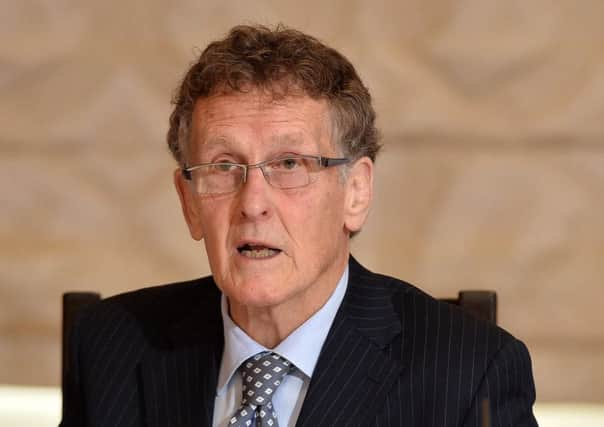Foster '˜tried to delay cost controls for constituent'


The probe into the supposedly green energy scheme which incentivised boiler owners to keep their boilers running heard that one company was literally promoting the scheme in its marketing leaflets as “cash for ash”.
Counsel for the inquiry, David Scoffield QC, said that another boiler company had realised within four weeks of the scheme’s launch in 2012 that it was lucrative to install multiple smaller boilers to get a high tariff and run them for long periods of time to make a significant profit.
Advertisement
Hide AdAdvertisement
Hide AdIt was stressed that both companies were merely aggressively pointing out the nature of a government scheme which people were being urged to join.
But Mr Scoffield said that a key question for the inquiry would be why it took another three and a half years for civil servants – at the point where they were desperately attempting to close the out-of-control scheme – to realise the perverse incentive at the heart of their scheme.
Yesterday, on the third day of the public inquiry chaired by retired judge Sir Patrick Coghlin, Mr Scoffield revealed that former first minister Arlene Foster, who as enterprise minister set up the scheme without the cost controls in the GB scheme, had attempted to delay the belated introduction of those cost controls three years later on behalf of a constituent.
The inquiry was also told that Andrew Crawford, then Mrs Foster’s special adviser, passed sensitive departmental information about the looming cost controls to family members who were either current or prospective RHI claimants.
Advertisement
Hide AdAdvertisement
Hide AdThe inquiry was also told of allegations – which in one case are strongly denied – that some DUP Spads worked to delay the introduction of cost controls and in one case erroneously believed that overspending on the scheme could be to Northern Ireland’s “advantage”.
The inquiry was told that Andrew McCormick, the permanent secretary of Mrs Foster’s old department, had said in written evidence that he had been phoned by Timothy Cairns, who was the DUP special adviser to Mrs Foster’s successor as enterprise minister, Jonathan Bell, on November 13, 2015 – days before the planned Assembly debate on the introduction of cost controls.
Mr Scoffield said that, according to the senior civil servant’s evidence, Mr Cairns “asked if it would be possible for the debate on the reduction in the tariff to be delayed by a week or so. Dr McCormick’s recollection of the conversation is that Mr Cairns referred to a concern that not enough businesses in Fermanagh had been able to apply.
“He certainly feels, he says, there was a reference to Fermanagh and ... that the call was on behalf of Arlene Foster.”
Advertisement
Hide AdAdvertisement
Hide AdThe inquiry was told that Mr Cairns later told Dr McCormick that Mrs Foster “had raised the issue on behalf of a constituent who had six biomass boilers that were not yet ready to meet the conditions for accreditation under the scheme”.
The inquiry was told that from Mrs Foster’s evidence she accepts that she inquired about the possibility of delaying cost controls at that point on behalf of the constituent, who was a salesman for Hegan Biomass, which installed boilers – but that once she was told about the huge public spending implications such a move would have had, she immediately dropped the request.
Mr Scoffield said: “Mrs Foster told us that following a phone conversation with a constituent, a Mr Steven Harron ... she phoned Mr Cairns and inquired about the possibility of ‘moving back by about a week or so the introduction of the tiered tariffs” but that after being briefed about the cost implications she accepted that the amendments to the regulations should proceed.”
Mr Scoffield said that the inquiry had sought further information on the situation from both Mr Cairns and from the DUP leader.